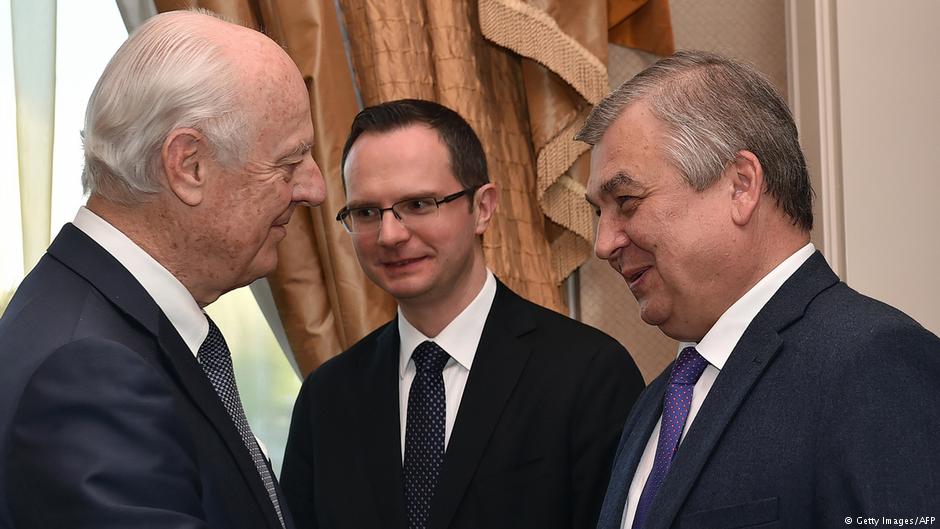Russia has proclaimed the launch of four “de-escalation zones” inside Syria, following an agreement with Turkey and Iran and despite the objections of the Syrian opposition and Kurdish factions.
The Russian Defense Ministry said the zones — in northwest Syria in Idlib and adjacent areas of Hama, Latakia, and Aleppo Provinces, near Damascus, and in parts of southern Syria — came into force from midnight.
Fighting was reported in northern Hama Province, with rebels repelling a pro-Assad attempt to take the village of Ziliqiat, up to the deadline; however, there were no significant reports of Russia or regime bombing, following months of intensive airstrikes from the northwest to the Damascus suburbs.
The opposition rejected the Russian-Turkish-Iranian announcement in the political talks in the Kazakhstan capital Astana on Thursday. They said that Iran — which has taken over the lead in the ground fight in many areas inside Syria — could not be a guarantor and that Syria should not be partitioned with President Assad retaining power.
See Syria Daily, May 5: Russia-Turkey-Iran Agree “De-Escalation Zones” — Can They Be Implemented?
The High Negotiations Committee added that the deal “was concluded without the Syrian people” and “lacks the minimum basics of legitimacy”.
The Syrian Kurdish Democratic Party (PYD) also rejected the zones as a “sectarian partition” and a “crime”.
Spokesman Ibrahim Ibrahim said the proposal could threaten Kurdish autonomous regions in northern Syria that have been established during the 73-month conflict.
The US State Department said on Thursday that it welcomed the zones but expressed concern over Iran’s role in the implementation. Washington soon faced a further complication when Russian envoy Alexander Lavrentiev declared that warplanes of the US-led coalition would be barred from overflights of the areas.
On Friday, Pentagon spokesman Captain Jeff Davis implicitly rebuffed the Russians by telling reporters that the coalition had not altered operations, but he offered no further comment on the zones.
Russian envoy Alexander Lavrentiev (right) with the UN envoy for Syria, Staffan de Mistura, at political talks in Astana, Kazakhstan, May 4, 2017 (AFP)

